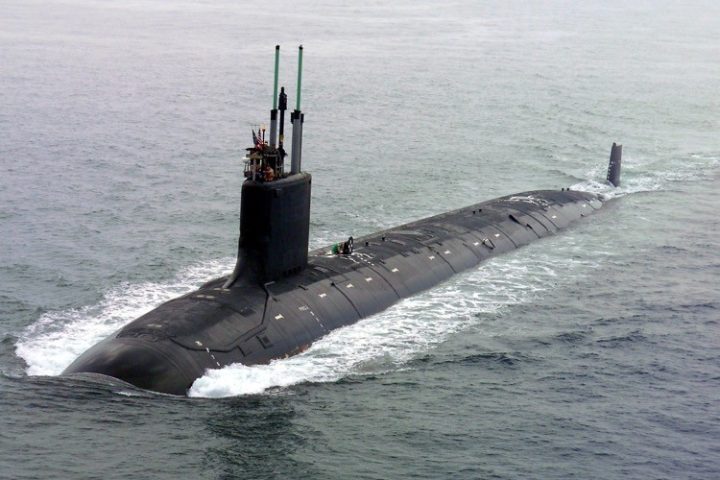
SINGAPORE — Australia’s plan to obtain nuclear-powered submarines from the United States has met with an obstruction in wake of worries in Washington that the blueprint risks leaving the United States without sufficient submarines for its naval needs.
The country is poised to receive nuclear-powered submarines from the United States and Britain as part of the AUKUS three-way security pact declared in 2021.
After recent news that two U.S. senators had broached concerns about the agreement, Australian Prime Minister Anthony Albanese said that he has lobbied with members of the U.S. Congress “in a really positive manner” to persuade them to back Australia’s submarine program.
“We are reliable partners.… I’m confident going forward that we will have a positive outcome,” he told The Australian.
Australia is mulling over purchasing ready-made Virginia-class nuclear-run submarines from the United States while it builds a new fleet, which will likely entail at least eight vessels and is not slated to be fully operational until the 2040s.
Nonetheless, lawmakers and officials in Washington have voiced fears that U.S. shipyards will not be able to fulfill the U.S. Navy’s demands if it provides Virginia-class submarines to Australia.
Earlier in January, the website Breaking Defense disclosed the contents of a leaked letter from U.S. Senators Jack Reed (D-R.I.) and James Inhofe (R-Okla.) to U.S. President Joe Biden, cautioning him that supplying Australia with nuclear submarines could undermine America’s military capability.
“We believe current conditions require a sober assessment of the facts to avoid stressing the U.S. submarine industrial base to the breaking point,” said the letter by Reed, a Democrat and chairman of the Senate Armed Services Committee, and Inhofe, a Republican, the former chairman.
The two senators are not alone in their concerns. Other members of Congress have articulated worries about the submarine deal. Representative Rob Wittman (R-Va.) recently remarked that, because of the United States’ own naval demands, Washington should not simply sell submarines to Australia.
However, such views are not unanimously shared. In light of the leaked letter from the senators, a bipartisan group of lawmakers wrote to Biden, stating that selling submarines to Australia could raise funding that could be used to increase America’s shipbuilding capacity.
Such discussions have reflected a relatively rare open divide between Canberra and Washington on a major strategic policy, notwithstanding Australia being an ardent supporter of the United States.
While Albanese has tried to paint U.S. concerns as “legitimate,” he reiterated that Australia could procure the submarines without compromising the interests of the United States or Britain.
Australian Defense Minister Richard Marles said Australia wants to build its own capability to develop nuclear-powered submarines to prevent exhausting the industrial capacity of its allies.
“We understand that we will need to make our own contribution to the net industrial base of the three countries,” Marles told reporters. “We will be able to deliver this with support across the political systems of both the United States and the United Kingdom.”
Domestically in Australia, opposition to the plan to acquire nuclear-powered submarines has risen. Two former prime ministers, Paul Keating from the Labor Party and Malcolm Turnbull, a Liberal, have opined that the submarines will make Australia overly reliant on the United States.
Turnbull said that as Australia has no domestic nuclear industry, it would not have total control of its own nuclear-powered submarines.
“Almost completely overlooked in Australia is the fact that nuclear-powered submarines to be acquired from the US will not be able to be operated or maintained without the supervision of the US Navy,” he posted in a tweet.
That being said, Albanese has been unfazed and has decided to go ahead with the acquisition, indicating on January 18 that the government was almost done finalizing its submarine announcement, as he informed journalists that more details can be expected in the near future.
“You don’t build a nuclear-powered submarine quickly, and so the question of when we would be able to have the first submarine in the water is one that is very pertinent to us,” Marles remarked at a joint news conference with U.S. Defense Secretary Lloyd Austin after talks in Honolulu last year.
Australia, the U.K., and the United States announced the AUKUS security deal on Sept 15, 2021, promising to work more closely on defense and research.
The deal will see the United States and Britain working with Australia to help build and maintain a fleet of nuclear-powered submarines, increasing Australia’s military reach in the Asia-Pacific region.
“It was great with Secretary Austin to affirm the progress there,” Marles said.
Apart from extending the life of its existing non-nuclear subs, Australia is hoping to “minimize and plug any capability gap,” he added.
A timeline for the arrival of the nuclear-powered models and how to bridge any capability gap will come in an announcement, Marles said, as Austin reinforced U.S. warnings of China’s expanding role, citing “a growing challenge from autocratic countries” in the region and globally.
“We’re deeply concerned by China’s aggressive, escalatory and destabilizing military activities in the Taiwan Strait and elsewhere in the region,” he said.
Marles remarked that China is seeking “to shape the world around it in a way that we have not seen before,” posing a challenge for countries seeking to uphold the global rules-based order,” including freedom of the seas.
The AUKUS agreement has been lampooned by some of Australia’s neighbors, especially China, which voiced its concerns to the International Atomic Energy Agency (IAEA).
Beijing claimed that the agreement to give Australia nuclear submarine technology violated international non-proliferation treaties.
After IAEA Director-General Rafael Mariano Grossi said he was satisfied with the AUKUS partners’ activities thus far, Chinese Foreign Ministry spokesman Mao Ning lambasted the agency for turning “a blind eye” to global concerns.



